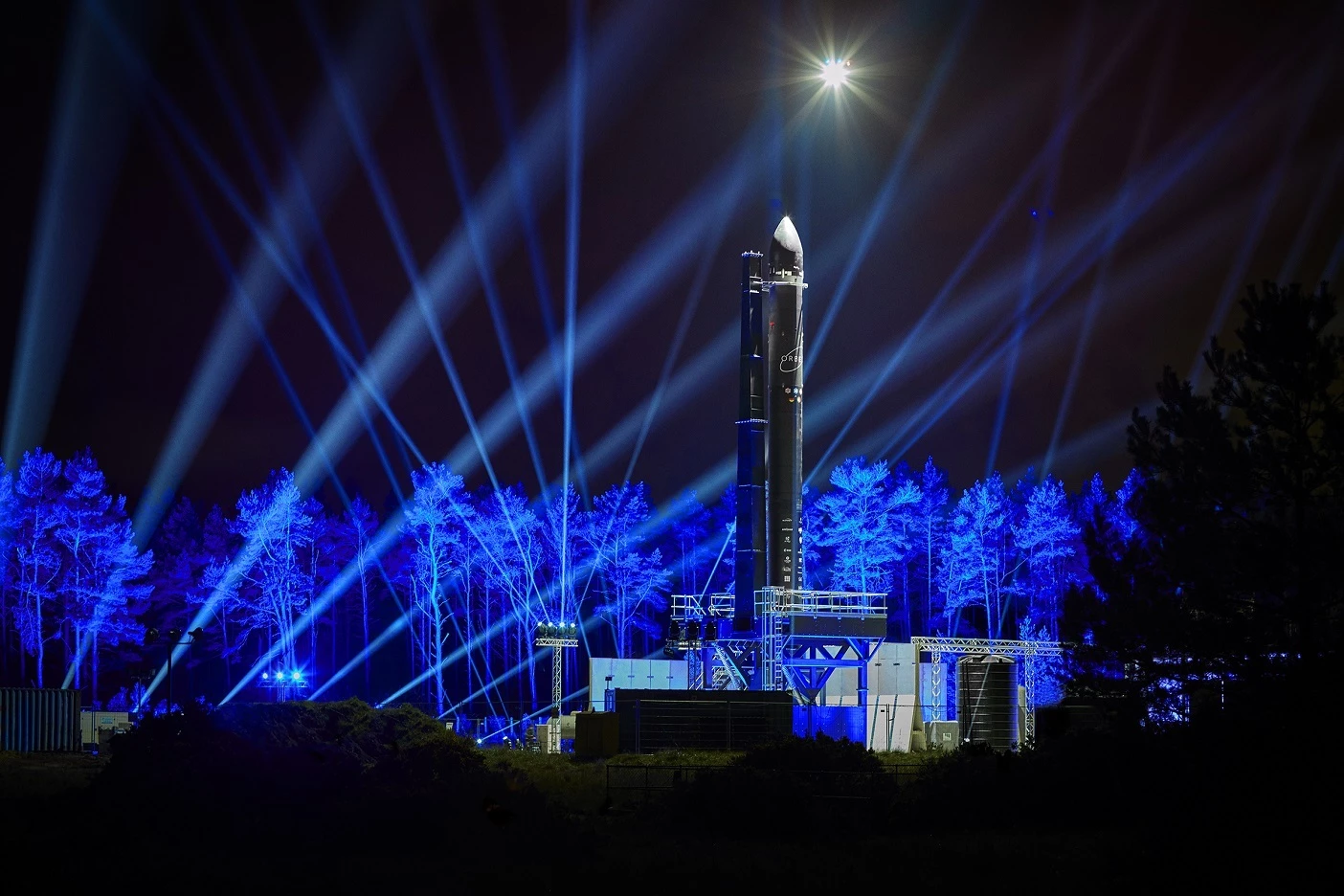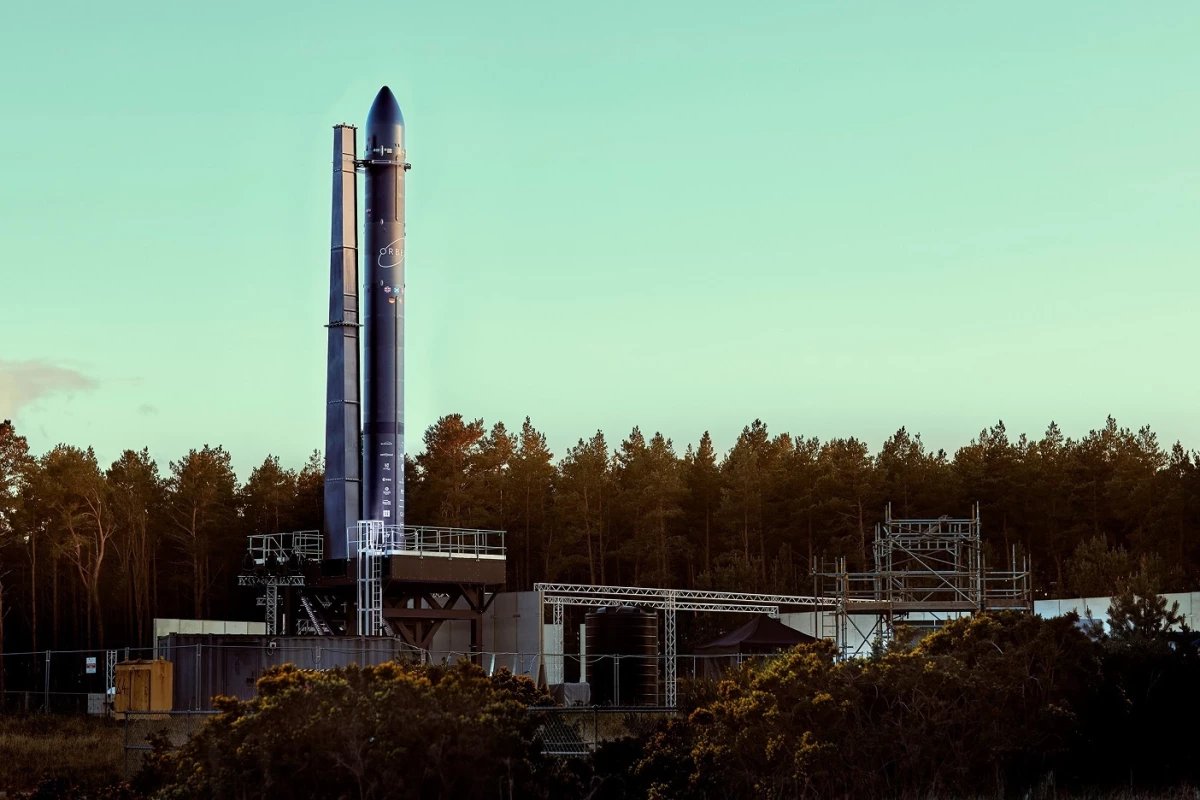Orbex has publicly unveiled the full-scale prototype of its reusable Prime rocket on its pad at Space Hub Sutherland in northern Scotland, where the first-ever vertical launch of a satellite from UK soil is set to be carried out in the coming months.
Despite being a major player in space technology, Britain hasn't launched a space rocket since 1971 and has never launched one from UK soil. Now, with the booming market in CubeSats and other small satellites, Scotland-based aerospace company Orbex has developed Prime. This is a 19-m (62-ft), two-stage rocket with carbon/graphite components and seven Anglo-Danish 3D-printed engines – six in the first stage and one in the second stage – all running on green bio-propane.
Now that Prime has been fully integrated and set on its pad, it will undergo extensive testing, launch rehearsals and tweaking of launch procedures. When ready, the rocket will be able to deliver batches of small satellites to low-Earth orbit. According to Orbex, Prime is designed to leave zero debris during the launch thanks to its reusability and produce 96 percent lower net carbon emissions than conventionally-fueled launchers.

Prime is scheduled to launch later this year when Space Hub Sutherland becomes fully operational. When it does, it will not only be Britain's first vertical launch space facility, but the first spaceport in Europe, and the first in the world to claim to be carbon neutral.
"This is a major milestone for Orbex and highlights just how far along our development path we now are," said Chris Larmour, CEO, Orbex. "From the outside, it might look like an ordinary rocket, but on the inside, Prime is unlike anything else. To deliver the performance and environmental sustainability we wanted from a 21st century rocket we had to innovate in a wide number of areas – low-carbon fuels, fully 3D-printed rocket engines, very lightweight fuel tanks, and a novel, low-mass reusability technology."
The video below shows highlights from the Prime rocket unveiling.
Source: Orbex





